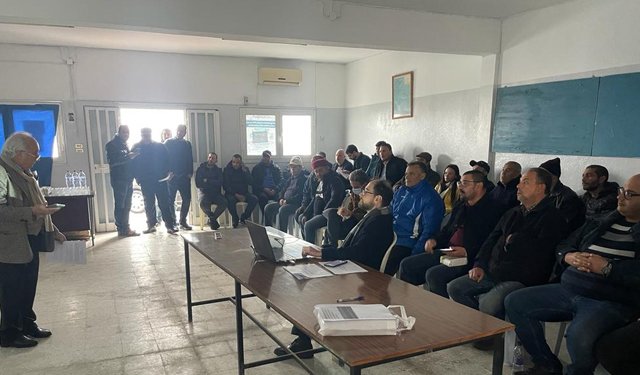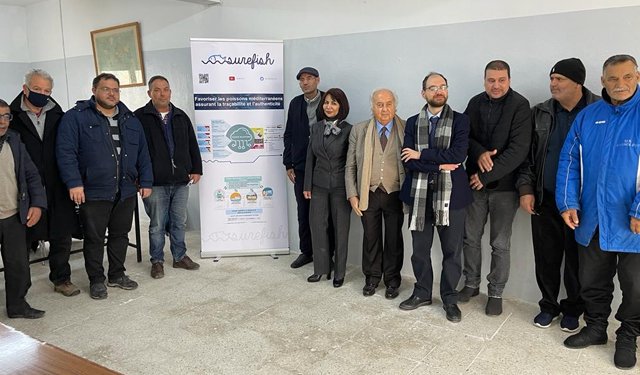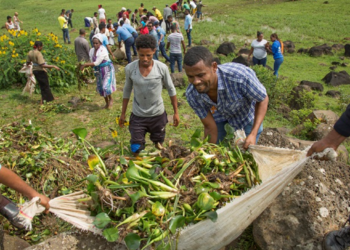At the Port of Sfax fishermen meet representatives of the Surefish project – Slow Food Tebourba, a partner in the SUREFISH project, held a meeting with fishermen and fishery operators from Sfax to present the project and the opportunities for traceability, innovation and sustainability of fish in the Mediterranean.
The SUREFISH consortium, made up of 13 partners from five countries on both sides of the Mediterranean Sea (Italy, Egypt, Tunisia, Spain and Lebanon) works synergistically with innovative information and communication technologies (ICTs) for traceability and valorisation of the catch, such as blockchain, labelling and smart packaging and analytical and sensory methods. The project is one of the winning projects of the PRIMA 2019 Calls for Proposals for the ‘agrifood value chain’ sector with the guarantee on the valorisation and protection of fishing, in particular for anchovy, grouper, tilapia and bluefin tuna.
A synergy between associations, companies and local activists using the most innovative technologies, employing analytical and sensory methods for traceability. At the same time, the project aims to develop communication and information strategies to promote consumer confidence, with certification marks and the development of computer applications, to protect endangered species in the Mediterranean and to share research data.
At the Port of Sfax, numerous fishermen, representatives of fish exporting companies, ship owners, members of the Tunisian GIPP and URAP companies, veterinarians and representatives of the Port of Sax also met with delegates from the Slow Food Tebourba/Gi.&Me. Association, chaired by Mr. Franz Martinelli, on the importance of traceability and the sustainable valorisation of fishing in Tunisia and the Mediterranean. The proceedings were coordinated by Ali Ben Messaoud and Hedi Gargouri and President Franz Martinelli presented the SUREFISH project together with Domenico Letizia, journalist and Communication Manager, who described the importance of traceability and innovative technologies for fishing and the fish supply chain, followed by a presentation by Professor Salwaa Sadok, director of the Laboratory of the Institut National des Sciences et Technologies de la Mer, who emphasised the importance of technological innovation and cooperation between fish operators for Tunisian companies and for increasing exports abroad.

A debate was then held with fishermen and representatives of fishing companies on the tools and technological means to be used for the implementation of the traceability system in the Tunisian fish market. During the proceedings, fishermen from Sfax also described the problems they encounter in their daily work, mentioning that one of the biggest problems is the pollution of the sea in Tunisia, due to plastic. The pollution of the coasts and the sea by plastics can cause several negative consequences, such as the high costs of their disposal, for the cleaning of beaches and risks to public health.
Another issue that has emerged is that of the blue crab, which has strong impacts on ecosystems and local artisanal fisheries. The blue crab is one of the invasive species that is being discussed the most, because of its ecological impact but also because of the economic value it could derive from fishing and food consumption. Having settled in the Mediterranean for years now, thanks to warming waters, this crustacean has been able to stabilise and spread more and more, like other exotic fish originating from other seas. The fishermen, local entrepreneurs and representatives of the Port of Sfax emphasised the importance of developing communication and information strategies to promote consumer confidence, with certification marks, the development of computer applications, to protect endangered species in the Mediterranean, and to share research data with all the project’s protagonists.
At the Port of Sfax fishermen meet Surefish project representatives









